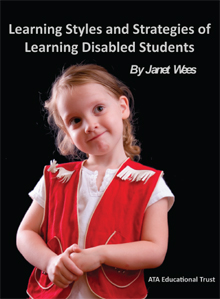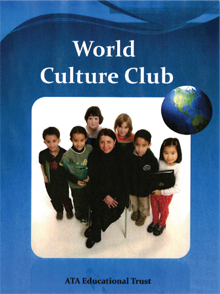Page Content
Teachers and profession reap benefits of research
About the Trust
In 1977, with a pension bequest from retired teacher William Frederick Powell, the Alberta Teachers’ Association established the ATA Educational Trust.
The objectives of the Trust are to
- encourage and support research and studies about teachers and teaching that advance knowledge of teaching,
- provide bursaries to help teachers increase their knowledge of teaching and improve their teaching skills and
- encourage and fund projects to advance public knowledge and interest in education.
The Trust is managed by a board of seven trustees, named by the Association, who meet twice a year. The ATA supports the day-to-day operation of the Trust by providing office space and staff. Its audited statements and annual report are published as part of the ATA annual report.
Trustees for 2009/10 are
- Chris McCullough (chair), teacher representative, Red Deer Catholic Local No. 80
- Donna Armstrong, teacher representative, Medicine Hat Local No. 1
- Madeline Fischer, representative, Alberta Retired Teachers’ Association
- Roxane Holmes, teacher representative, Horizon Local No. 4
- Noeleen Kinsey, independent parent representative
- Robert McKague, teacher representative, Calgary Separate School Local No. 55
- Gaylene Schreiber, executive staff officer representative, Alberta Teachers’ Association
The Trust owes its existence to donations. Bequeaths, personal donations, donations to celebrate a colleague’s successful career in education and donations in the memory of someone are encouraged. As a registered charity, the Trust issues receipts for income tax purposes. Donation forms are available on the Trust website: www.teachers.ab.ca (under Information On, on the right side of the screen, click on ATA Educational Trust).
Grants and Bursaries are available
Application forms for grants and bursaries are available the first week of January in any given year. The following grants and bursaries are available in 2011:
- Project grants for expenses of up to $3,000 for teachers to develop classroom resources or conduct research projects to improve teaching practices. The application deadline is May 1, 2011.
- Educational bursaries are available to help Alberta teachers improve their skills and knowledge through formal education. The names of a minimum of 30 applicants are entered into a draw for bursaries of up to $500 toward tuition. The application deadline is May 1, 2011.
- ATA specialist council conference grants of $300 are given to a minimum of 30 teachers to offset the cost of attendance at a specialist council conference. The names are chosen in a draw. The application deadline is September 30, 2011.
- The $1,000 Orest and Francina Bursary in Technology Education is offered to a third-year education student in the University of Alberta’s CTS program. For details, contact the Faculty of Education, University of Alberta.
EDTrust projects available in the ATA Library
Featured here are three of the more than 130 teaching resources and project reports produced with funding from the Trust and available from the ATA library. Teachers are encouraged to borrow these materials by contacting the library. Telephone: 780-447-9442 (in Edmonton) or 1-800-232-7208 (elsewhere in Alberta).
 Learning Styles and Strategies of Learning Disabled Students
Learning Styles and Strategies of Learning Disabled Students
Janet Wees
Although the ATA Educational Trust research project Learning Styles and Strategies of Learning Disabled Students was written in 1993, it is still relevant today. In fact, John Dewey advocated for learning through experiences more than 100 years ago. Dewey argued that schools were social institutions where students should participate in their own learning through experience and interaction.
The saying “I hear, I forget; I see, I remember; I do, I understand” should drive all teaching practice. Looking at learning styles helps teachers better understand their students, and students better understand how they learn.
As a teacher, I encourage you to make your classroom more active, more integrated and more experiential. Look at your students’ learning styles and adapt your programming to focus on their strengths. That doesn’t mean ignoring weaker areas; however, showing a child how to succeed is much more motivating than showing him where he has failed.
The research for Learning Styles and Strategies of Learning Disabled Students took place between 1988 and 1993. The students in the study were in the learning disabled and gifted/learning disabled programs at Huntington Hills Elementary School and Cambrian Heights Elementary School, in Calgary. This research project supplemented an MEd field study of a kinaesthetically, experiential, thematically integrated program for gifted learning disabled students, but the findings in this study are relevant for all students.
For information, contact Janet Wees by e-mail (jreeva@hotmail.com). The ATA Educational Trust research project Learning Styles and Strategies of Learning Disabled Students is available from the ATA library (371.9 W398).
 World Culture Club
World Culture Club
Whitecourt School Staff
Whitecourt Central School believes that students need to become citizens of the world and identify differences as strengths.
We at Whitecourt Central School felt it was essential to foster an understanding of cultural differences among people. Therefore we created the World Culture Club to provide Whitecourt Central School students with an opportunity to investigate and learn about different cultures around the world (lives, customs, traditions and history).
Teachers and support staff researched different cultures and related resources, and determined the specific learning that students would obtain from the World Culture Club. Artifacts offered hands-on experience and kept students engaged. Teachers developed activities and study groups.
Activities provided students with an opportunity to live their lives in a different environment. After studying different cultures, students turned their attention to their own. Students were enthusiastic about sharing their traditions with their classmates and developed a new appreciation and respect for others’ differences.
Expanding this project to promote a respect of cultural differences to parents is under consideration. Cultural selections could be incorporated into the Christmas concert as well as the Family Fun Dance. We will continue to promote the idea that differences can be strengths.
This project includes a summary with examples of activities and links to curriculum, a list of resources and specific studies for students in Grades 3 and 4. The project is available from the ATA library (370.117 W927).
Where Are They Now? Reasons for Success among First Nation Students at the Glenwood School
Kelly Thomas
This research project explores why some First Nations, Métis and Inuit (FNMI) students graduate from high school and others do not. By surveying former FNMI Glenwood Elementary School students, Thomas discovered that high school graduation rates increased when students had parents or caregivers who had graduated from high school (or postsecondary) and who provided support at home. Thomas was disappointed to find that former Glenwood FNMI students had similar high school graduation rates to other FNMI students in Canada—less than 50 per cent.
Read also the article Success Among First Nations Students.
More information about the ATA Educational Trust and how to donate is available here.
